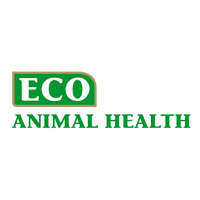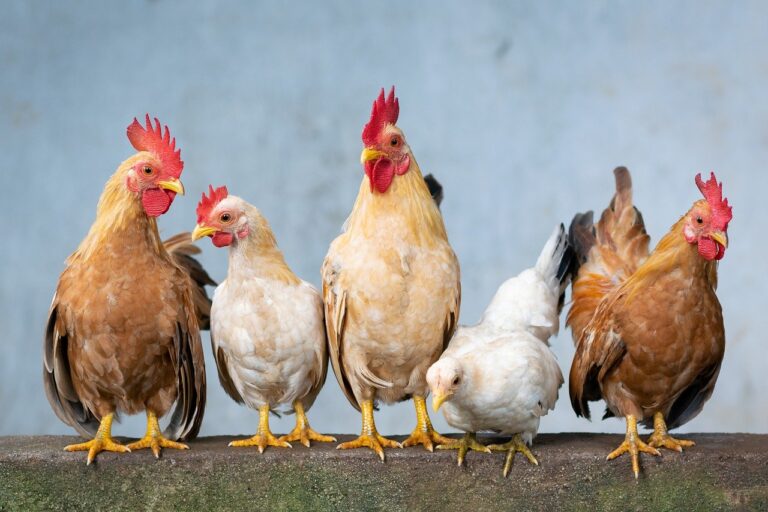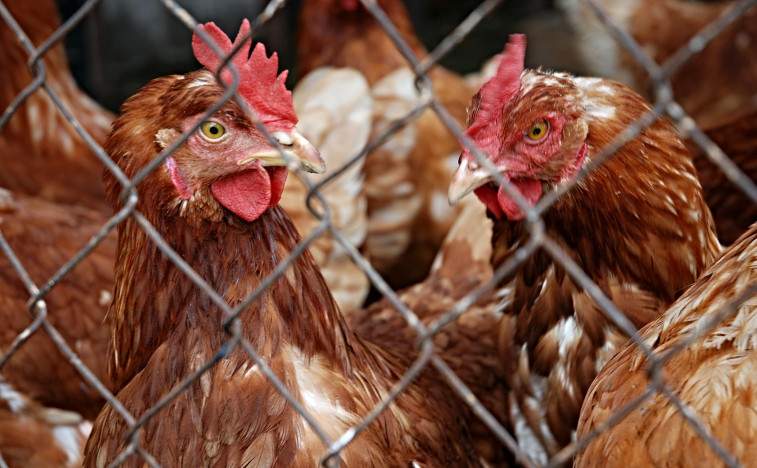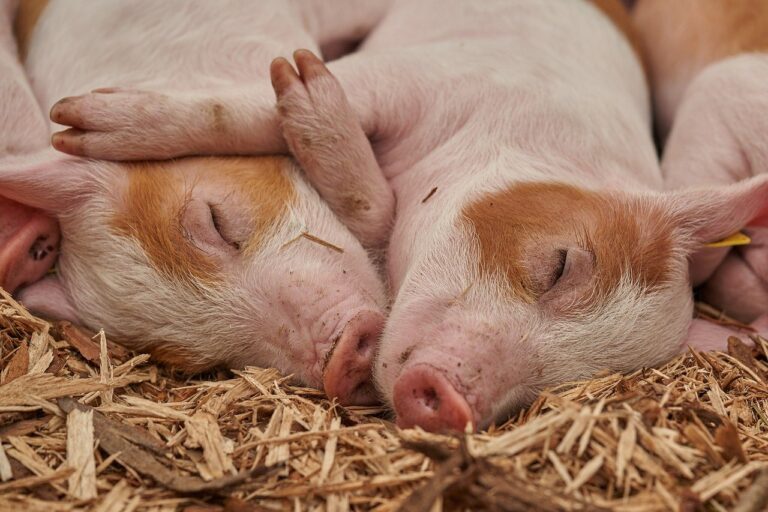Eco Animal Health Group Plc (LON: ECO) has today provided results for the year ended 31 March 2019.
ECO REPORTS ANOTHER STRONG PERFORMANCE
HIGHLIGHTS
Financials
- Sales 11% higher at £74.6m (2018: £67.2m)
- Adjusted EBITDA higher at £20.1m (2018: £19.6m)
- Profit before taxation 10% higher at £15.2m (2018: £13.9m)
- Profit after taxation 16% higher at £13.6m (2018: £11.6m)
- Earnings per share 24% higher at 17.60p (2018: 14.19p)
- Dividend 20% higher at 11.04p (2018: 9.2p)
- Special dividend of 3.5p paid in January 2019
- Strong cash generation from operations of £13.3m (2018: £15.8m)
- Net cash lower at £18.1m (2018: £21.3m)
Operations
- Demand for Aivlosin® continued to grow strongly, with new marketing authorisations gained in Europe, Vietnam and India.
- Revenue in China flat despite challenging market conditions triggered by the African Swine Fever (ASF) outbreak.
- Strong sales growth in the other strategically important markets; North America, Latin America, Thailand and India.
- Five new vaccine and product development licensing agreements signed for pigs and poultry.
- Accelerated investment in vaccine development programme and people to drive future growth.
Marc Loomes, CEO of ECO Animal Health Group plc, commented:
“These are credible results for a year that was adversely depressed by both ASF and a trade war between the USA and China, our two largest markets. We are confident that our accelerated development programmes in vaccines and other products will add long term growth. For the year ahead we expect to report continued growth and to perform in line with the Board’s expectations.”
CHAIRMAN’S STATEMENT
FOR THE YEAR ENDED 31 MARCH 2019
I am delighted to have joined the Board in March 2019 as Chairman and look forward to leading the Board in the next exciting phase of the Group’s development. Although not involved with the business last year, I am pleased to be able to report that ECO had another successful year and the business is in good heart.
Sales were 11 per cent higher than in 2017/8. Profit after taxation rose by 16 per cent to £13.6m, and earnings per share increased by 24 per cent to 17.6p. Dividends paid in the year totalled 12.7p per share including the ‘one off’ distribution in January 2019. The Group cash balance remained strong at the year end at £18.1m.
Our strategy of concentrating on growth opportunities in the important and growing markets of the USA, Latin America, China and the Far East paid off but the outbreak of African Swine Fever (ASF) in China curtailed sales in China in the second half of the year. This constraint is likely to continue in 2019 and until the disease has been contained, at which point we would expect to see further market growth, as the herd is rebuilt. In the meantime, Chinese food shortages will probably be bridged by imports particularly from Latin America and the USA if trade restrictions are lifted, so opportunities in those markets should improve in tandem.
Mid-year, when the Board was reviewing the potential of the Company’s R & D investment, the science team brought forward a compelling list of opportunities that convinced the Board that R&D expenditure should be increased to drive both medium term growth and business diversity. From the opportunities presented, the Board selected a mix of medium and long-term projects that comprise an affordable balance of risk and opportunity.
For 2019/20, development expenditure will rise above £9 million (2019: £5.3 million) to accelerate the development of our new vaccine range. However, it should be noted that even with this new investment, the development and regulatory timelines are such that we do not expect to see sales before 2022/23.
Last year, the Board decided to recommend to shareholders that it should use some of the accumulated cash balances to pay a one-off exceptional dividend of 3.5 pence per share and that was paid to shareholders on 9 January 2019.
There is no intention to repeat last year’s special distribution. The Board is now proposing a dividend for the year of 11.04 pence per share, which subject to shareholder approval will be paid on 16 October 2019 to shareholders on the register on 27 September 2019. The ex-dividend date will be 26 September 2019. This dividend represents an increase of 20 per cent over the previous year after finalisation, in line with our progressive dividend policy.
We have completed the transfer of our Aivlosin® API manufacturing process to a new facility in China which has greater capacity and the latest environmental controls. The purpose-built plant was validated and approved by the EU & US regulators.
After many years as a successful Chairman and continued substantial shareholder in the Company, Peter Lawrence, the founder of ECO, decided to retire during the final quarter of the year. The Board and the staff of the Company would like to thank him for his excellent stewardship during his tenure.
Looking forward, I will be reviewing, with the Board, the three-year corporate strategy over the next six months and will report more to shareholders with the interim results.
In my short time with the Company, I can report that the documenting of our corporate governance processes is well in hand and further work will continue during the current year.
In this regard, we have already made some changes to our annual reporting and shareholders will see these changes in this report. Reporting will evolve further during 2019.
In closing, I would like to say how much I am looking forward to helping guide ECO through its next stage of business development and growth.
Outlook
The beginning of the year will remain challenging because of the continued impact of African Swine Fever in China but we believe that there will be some compensating buoyancy elsewhere as other nations move to fill the food shortages in China.
We are excited by our accelerated development programmes in vaccines and other products which are expected to result in long term growth.
For the full year ahead, we expect to report continued growth and to perform in line with the Board’s expectations.
Richard Wood
Chairman
18 June 2019
CHIEF EXECUTIVE’S REPORT
FOR THE YEAR ENDED 31 MARCH 2019
Global revenue grew by 11 per cent to £74.6 million in a year dominated by an outbreak of African Swine Fever (ASF) in China and an ongoing trade war between the USA and China, our two principal markets. This year’s result, once again, demonstrated both the value of our global footprint, with sales generated in more than seventy countries, and the commoditised nature of pork and poultry production.
Sales of Aivlosin®, our patented molecule for the treatment of economically important diseases in pigs and poultry, increased by 14 per cent, accounting for 78 per cent of total revenue. Sales of the smaller Ecomectin® anti-parasitic range, which were adversely affected by European manufacturing issues and altered distribution purchasing patterns, declined by 7 per cent. Sales of all other products rose by 6 per cent, principally driven by increased sales in Mexico.
The Chinese subsidiary’s revenue was held at last year’s level, despite the ASF outbreak which exploded in August 2018 and spread rapidly throughout China. The severe movement restrictions, imposed by both the authorities and producers whose herds had remained free of disease, curtailed on farm selling but our team found new and innovative ways to reach customers. Margins did soften and credit terms were adjusted to retain business, during this period, resulting in Group debtors increasing by over £12 million during the year under review.
Recent analysis by Rabobank indicates that China has lost up to 200 million pigs (30 per cent of Chinese swine production). This figure exceeds the total USA production of about 120 million pigs per year. The 30 per cent loss of the breeding herd equates to double the total number of sows in the USA.
To combat this downturn and continued uncertainty in the short term, our focus for Aivlosin® in China has now shifted from being almost exclusively directed at the pig sector, to include poultry. In this new area, we are making good progress and look forward to reporting on developments.
North American revenue increased by 20 per cent. In the USA, revenue was 17 per cent higher, driven by Aivlosin for use in Swine Respiratory Disease. Margins softened as market pig prices were low and swine producers were making trading losses, in what was a difficult year for farmers. However, by March 2019, the $20 loss per market pig being experienced at the end of 2018 had reversed to a $30 per pig profit, because of a combination of cheapening feed prices and global supply shortages brought about by ASF in China. Canadian revenue rose 27 per cent, buoyed by the introduction of new veterinary prescription regulations for in-feed medication and adjusted commercial terms.
In South and Southeast Asia, revenue was 4 per cent higher. Highlights from the region included strong growth in India, Thailand and Pakistan. The improvement in India was a consequence of the establishment of ECO India and an adjustment to our route to market. For Thailand the improvement was as a result of implementing key account management strategies for both pig and poultry producers with our local third-party distributor. In Pakistan a number of accounts were switched to Aivlosin® from a competing product. These results were tempered by challenging conditions in Indonesia, Vietnam and Malaysia. In Indonesia a ban on all in-feed antimicrobial medication in early 2018 suspended trading for 8 months until Aivlosin® was successfully re-registered. Weak pork prices and the shutting of exports to China from Vietnam reduced potential in that territory.
Latin America revenue rose strongly by 62 per cent, with buoyant trade through the subsidiaries in Mexico and in Brazil, up 34 per cent and 47 per cent respectively. In both cases the benefits of following key account management strategies were increasingly evident. New business was written in Chile, tenders were won in Cuba and Colombia also performed particularly strongly.
European revenue declined by 4 per cent. Although sales in the United Kingdom, which represent just under 2 per cent of global revenue, rose 24 per cent, across all products. Aivlosin® sales were strong in key markets such as Denmark, Poland and Germany but were offset by a change in stock holding policy by a regional distributor for a number of other key markets such as Spain and Italy. This reduced sales potential from ECO but not on sales in the market. The total value of product supplied to European distributors before the end of March to mitigate any potential Brexit related supply interruption risks, was negated by production issues. These resulted in some sales being postponed into the new financial year. Delays to the inspection of manufacturing facilities and laboratories, and delays in receiving licences in Russia, also impacted negatively on revenue. These issues are expected to be fully resolved within the coming year.
Sales in the Rest of the World rose 14 per cent, principally through increased sales of Aivlosin ® for use in the poultry sector in Egypt and Aivlosin ® sales for pigs in South Africa.
Revenue in Japan rose by 14 per cent, driven by growth in the swine business to large producers.
Product Pipeline
The Board made a strategic decision to increase annual investment in product research and development to ensure that the new product pipeline has a mix of well-established concepts as well as novel, potentially highly competitive technologies and approaches. Rather than carry the significant cost of an in-house R&D function, the Company’s early stage R&D activities are outsourced to leading research institutions. However, all on-farm development work is managed in-house. External development expenditure in the year rose by 43 per cent to £5.3 million (2018: £3.7 million) and will be increased by more than 70 per cent to over £9 million in 2019/20. This will ensure that we have several mid and late stage projects able to deliver revenues from 2022/23. The pipeline is focused on pigs and poultry, targeting both viral and bacterial diseases of economic importance in both species. However, there will be a shift in emphasis towards developing a range of vaccines and new products to complement our existing antimicrobial business.
During the year, two new international Aivlosin® marketing authorisations were secured, notably Aivlosin® 625 mg/g Water Soluble Granules (WSG) for chickens laying eggs for human consumption with a zero-day drug withdrawal period in India, and in Vietnam for the treatment of pigs and poultry. A further licence was obtained from the European Medicines Agency for the use of Aivlosin® WSG in breeding chickens just after the year end and this approval will now be rolled out beyond the EU into the multi-million dollar international poultry markets.
ECO established a joint venture called ECO-Pharm Limited, in the Republic of Ireland, with Pharmgate LLC of Wilmington, North Carolina, USA. The JV company will progress the registration and commercialisation of several swine vaccine products already licensed in the USA and Canada for use in the United Kingdom, the EU, the Commonwealth of Independent States, Brazil and Japan.
A further four licensing deals have been signed (including University of Georgia in the USA and the University of Ghent, for poultry vaccine development, and with Agrinnovation and Yissum Research Development Company of the Hebrew University of Jerusalem for a swine antimicrobial). All of these opportunities are currently being taken through rigorous proof-of-concept evaluations in well-designed studies before any commitment to further development funding is made.
Competition
The veterinary market is consolidating rapidly at all levels. The top 10 veterinary pharmaceutical companies accounted for 88 per cent of the global market and had an average growth rate of 7 per cent in 2018.
We believe that ECO’s key competition comes from the branded antimicrobial products for pig and poultry supplied by the major multinationals.
During 2018/9, we believe that the Aivlosin® global market share rose by 2 per cent to 10 per cent. This gain arose from displacing older branded products in this sector.
Brexit
ECO has successfully transferred all EU marketing authorisations to a new European subsidiary, ECO Animal Health Europe Limited with registered address in Dublin, Republic of Ireland. All contingency planning is in place and the financial and operational impact of Brexit is expected to be minimal.
People
ECO’s achievements are a direct result of the hard work, dedication and professionalism of our staff, now numbering more than 200 globally. We would like to thank all our employees for their individual and team contributions to ECO’s continued success.
Marc Loomes
Chief Executive Officer
FINANCE DIRECTOR’S REPORT
FOR THE YEAR ENDED 31 MARCH 2019
ECO has traded well in tough market conditions with revenues increasing 11 per cent to £74.6 million. Whilst some markets performed well, the trading challenges of ASF and the US trade war highlighted in the CEO’s report resulted in pressure on margins which fell 2.5 per cent to 45.4 per cent.
Management’s early intervention to control overheads minimised the impact on operating profit which rose by 4 per cent to £14.7 million (2018 £14.1 million). ASF reduced the Chinese subsidiary’s reported operating profit by over £1 million, to £5.2 million, (2018: £6.4 million). The Group’s global footprint enabled us to compensate for this as operating profit in the rest of the Group increased.
Adjusted EBITDA (the profits before tax adjusted for share based payments, foreign exchange, net finance income, depreciation, amortisation and impairment charges) increased by 3 per cent to £20.1 million (2018: £19.6 million). Excluding the Chinese subsidiary’s adjusted EBITDA decrease of £1.0 million, the remainder of the Group contributed £1.5 million to the increase in adjusted EBITDA. An explanation of how adjusted EBITDA is calculated, and the rationale for each adjustment can be found in the accounts.
Profit before taxation rose by 10 per cent to £15.2 million (2018: £13.9 million) supported by currency gains arising from the reversal of non-cash currency losses, particularly the US Dollar, from the previous year. As we purchase most of our raw materials in US Dollars, it is necessary to hold significant operational balances in that currency. These act as an economic hedge against movements in the exchange rate of Sterling against the Dollar.
The taxation charge for the year of £1.7 million was 24 per cent lower than in 2018. The UK trading company makes significant use of enhanced tax allowances for R&D expenditure and, more recently, has used the Patent Box regulations on profits deriving from Aivlosin®, with the result that it currently has over £10 million of accumulated tax losses in the UK. The lower margins in China that arose from the challenging market conditions have also contributed in a lower tax charge when compared to last year.
Profit after taxation rose 16 per cent to £13.6 million. The share of profit attributable to non-controlling interests (minorities) was £0.5 million lower so that profit attributable to the Group rose by the equivalent amount.
Retained profit rose to £11.8 million compared to £9.3 million for 2018, an increase of over 26 per cent. Basic earnings per share rose by 24 per cent due to a lower minority charge.
The Group invested just over £5 million in clinical trials for both existing and new projects. As we approach the end of the Aivlosin® development programme expenditure has started to shift away from Aivlosin® to other projects such as vaccines and other new products. As a result, amortisation will increase in future years, but this is necessary for the continued development and diversification of the business.
The Group adopted IFRS16 for the first time in the year. This brings most leased assets onto the balance sheet along with the corresponding lease liabilities. More details can be found in the notes to the financial statements. The effect on the Group’s reported profits and on net assets has not been significant.
Group capital expenditure was £0.5 million (2018: £0.3 million), spent on IT systems and barcoding equipment to meet new Chinese product regulations.
Inventory fell from £17.7 million at the end of financial year 2018 to £16.1 million as at 31 March 2019. As a Group, to act as a strategic buffer, we normally hold around 6 months’ sales of Aivlosin® in inventory but since March’s sales in the USA and in China were ahead of the levels achieved in March 2018, inventory levels at the year-end were reduced to under 5 months’ sales. Inventory has been restored to normal levels subsequent to the year end.
Trade receivables increased from £15.8 million to £27.8 million predominately due to extended credit terms in China. The high USA sales before year end also contributed to the increase. The yearend figure represented less than 3 months’ sales in respect of both 2018 and 2019.
The Group’s cash balance was held at above £18 million, net of the special dividend of £2.4 million paid in January. In addition, the normal dividends were 20 per cent higher than 2018, in line with the Group’s stated progressive dividend policy. Together with dividend payments to the joint owners of the Chinese subsidiary and an £8 million investment in product development, the cash balance demonstrates the strong cash generating capability of the Group.
Having substantial cash reserves, the Group does not have any bank borrowing facilities. The Group’s Treasury Management Function (TMF) therefore seeks to ensure that funds necessary for the implementation of approved activities are always available. It also aims to increase the net worth of the Company by managing funds in the most appropriate manner.
The main processes used for achieving this are:
- Updating 12 months cash flow forecasts every 3 months so that potential shortages are addressed in a timely manner.
- Working (with the sales function) to ensure that all amounts due to the Group are received in a timely manner.
- Ensuring as far as possible that all funds are held centrally, thus minimising the amounts held by subsidiaries, while not impeding their operations.
- Ensuring that all funds received are deposited with appropriate and financially stable institutions, while at the same time maximising returns on those deposits.
- Ensuring that funds are held only in currencies to the extent that it is anticipated those currencies will be required for use in the future, thus minimising foreign exchange risk.
- Ensuring that suppliers are paid promptly for goods and services rendered, which in turn ensures continuity of supply of those goods and services.
The board keeps these procedures under review but is satisfied that the TMF worked effectively in the year.
Post balance sheet event
The Company paid a dividend of £2,697,725 on 12 April 2019 to its shareholders.
Kevin Stockdale
Finance Director








































